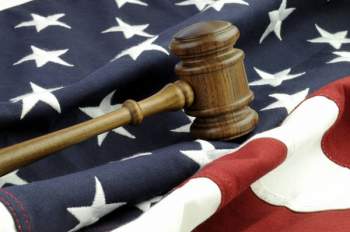
Bush v. Gore

The Background of Bush v. Gore
On December 8th, 2000, the Palm Beach County Court imposed a manual recount of upwards of 9,000 election ballots with regard to the Presidential election involving George W. Bush and Albert Gore – the previous Vice President to the Bill Clinton Presidency. The reasoning behind the manual recount was explained to be the result of faulty ballot equipment, as well as the suspicion of ballot tampering. Albert Gore petitioned this case before the Circuit Court of the State of Florida, and the manual recount was enacted.
The case of Bush v. Palm Beach County Canvassing Board (2000) was enacted by the campaign of George W. Bush with regard to a Florida Circuit Court that had undertaken the recounting of
The Case Profile of Bush v. Gore
The following is a case profile of the legal trial eponymously titled ‘Bush v. Gore’:
Date of the Trial: December 11th, 2000
Legal Classification: Administrative Law; this legal field associated with events and circumstances in which the Federal Government of the United States engages its citizens, including the administration of government programs, the creation of agencies, and the establishment of a legal, regulatory federal standard
Accused Criminal Activity: The following criminal activity and charges were cited by George W. Bush against Albert Gore within the appeal brought forth subsequent to the initial ruling:
George W. Bush explained that the manual recount resulted in the undermining of the 14th Amendment, which precludes legislation from enacting measures and activity considered to exist in contrast to the preservation of equality and uniformity within the administrative system
United States Reports Case Number: 531 U.S. 98
Date of the Delivery of the Verdict: December 12th, 2000
Legal Venue of Bush v. Gore: The Supreme Court of the United States
Judicial Officer Responsible for Ruling: Chief Justice William Rehnquist
Involved Parties: The following are the parties named with regard to their involvement in the Bush v. Gore case:
George W. Bush; Plaintiff – Bush v. Gore
Albert Gore; Defendant - Bush v. Gore
Verdict Delivered: The Supreme Court ruled in favor of George W. Bush, explaining that the State of Florida had indeed violated the 14th Amendment upon enacting a recounting procedure not considered to be cogent with the Equal Protection Clause; the Supreme Court maintained that this procedure resulted in the devaluation of the ballots initially set forth
Associated Legislation with regard to Bush v. Gore: The following statutory regulations were employed with regard to the Bush v. Gore trial:
Article III of the Constitution of the United States – within Section 2 – illustrates a legislative clause untitled the Supremacy Clause, which allows the Federal Government to maintain authority over all legislation in the event that contrast and unfair advantage exists; this clause was imposed in order to ensure a uniform and equal legal process within the entirety of the United States
The 14th Amendment introduced the Equal Protection Clause, which mandates the government’s obligation to respect, maintain, and uphold the legal rights of its citizens; governments are forbidden from infringing on civil rights and liberties resulting in the diminishing of uniform and equal undertaking of legislation
NEXT: Chaplinsky v. New Hampshire





















